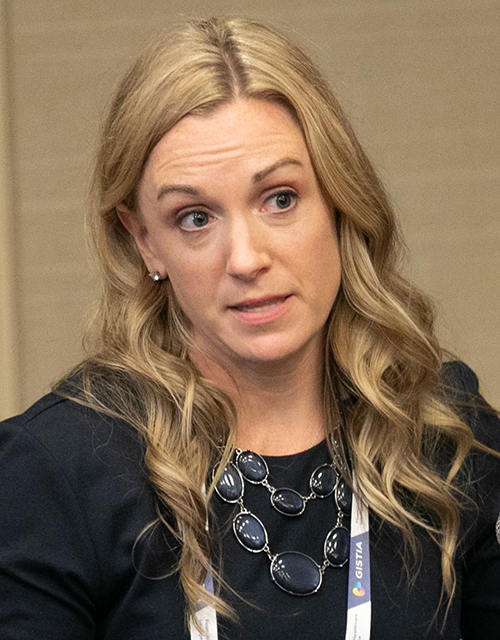Investigators can look at different angles, including drive-through testing sites for COVID-19 and whether uninsured patients were checked before free tests
Three healthcare compliance attorneys delivered a clear and concise message to clinical laboratory managers and pathologists across the 2022 Executive War College Conference on Laboratory, Pathology and Management: Expect the government to review the refunds it has paid COVID-19 testingespecially for the tests conducted at drive-thru sites that have sprung up across the country.
“The important question is: what is the fair market value of these specimens? » notary lawyer Emily Johnson, J.D.member of law firm McDonald’s Hopkins in Chicago. Johnson spoke at a legal panel Wednesday at the Executive War College in New Orleans.
The panel spent 75 minutes discussing various legal concerns, many related to COVID-19 testing, in front of a crowd of around 80 attendees.
Audits could come from HRSA reimbursements for COVID-19 tests
consumer reports noted in a January article that prices for COVID-19 tests varied wildly both at traditional healthcare settings and on pop-up sites, in some cases exceeding $1,400.
The average price for such a test within the network of an insurance company was $130.
Some people have paid for these tests out of pocket or covered them with insurance. For uninsured patients, the federal government Administration of health resources and services (HRSA) has established a cash reserve to reimburse labs for free COVID-19 tests. This pool has recently dried up and Congress has not approved additional funding.
the US Department of Justice can investigate the uninsured aspect of claims – in particular, if there have been attempts by lab staff members to verify whether a patient really was not covered by health insurance, explained Karen Lovitch, J.D.chair of the health care advocacy and health care law enforcement practice at a law firm Mint in Washington.
These issues raise False Claims Act risks, particularly if a clinical laboratory is auditing its own COVID-19 test requests. “If the labs come back retroactively and determine that a claim has been paid when it shouldn’t have been, those labs absolutely must be prepared to return that money,” Lovitch warned.
Clinical labs need a business plan for post-COVID-19 testing
As for ending HRSA payments for COVID-19 testing from uninsured payments, clinical labs should be wary of ending these tests outright without a documented business plan demonstrating the reasons for doing so, a noted Johnson. This advice is relevant to laboratories and pathology groups that have received financial assistance from the HRSA Supplier Relief Fund during the pandemic.
Some have interpreted the information on the fund to mean that providers are obligated to treat uninsured patients, Johnson added.
“If I stop accepting uninsured patients for COVID testing, am I in violation of the Provider Relief Fund?” she asked. A clearly documented reason to do so, such as the need to keep the business afloat through paid testing, would be a first step for the medical labs involved, she added.
Another point for laboratories to think about: in March, the federal government appointed Kevin Chambers, J.D.— who is currently an assistant deputy attorney general at the DOJ — as the first director of COVID-19 fraud enforcement.
Appointment underscores government’s commitment to covering up SARS-CoV-2 wrongdoing, lawyer says David Gee, J.D.partner in a law firm Davis Wright Tremaine in Seattle. Gee completed the panel at the Executive War College.
“I guarantee Chambers bosses want him to demonstrate that the government is serious about COVID-19 fraud,” Gee commented.
EKRA becomes a new tool against fraud related to COVID-19
Finally, as Dark Daily previously reportedthe Eliminating Kickbacks in Recovery Act (EKRA) of 2018 is sometimes used to prosecute cases of alleged COVID-19 test fraud.
EKRA has generally been associated with rules prohibiting the payment of commission to sales representatives of clinical laboratories based on the volumes of tests they generate. However, Johnson predicted more EKRA cases would be filed due to alleged bribes paid in exchange for referrals for COVID-19 testing.
“Prosecutors seem willing to pursue these cases aggressively,” she added.
And in The Dark Report Upcoming regulatory update, “Dept. of Justice: EKRA governs the sales and marketing commissions of the laboratory”, Daily Dark a sister publication explains how a recent federal judge’s ruling may weaken EKRA and “immunize conduct that increases medical costs.”
Subscribers to The dark report will want to stay informed of critical changes that affect the operation of EKRA.
—Scott Wallask
Related information:
Executive War College Keynote Speakers Outline Divergent Pathways to Clinical Laboratory Testing
Your questions about COVID-19 home testing answered
DOJ: Fighting Fraud Related to COVID-19
EKRA is now also used to combat fraudulent COVID-19 testing

